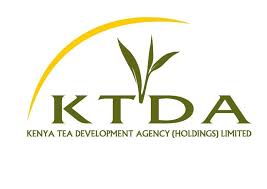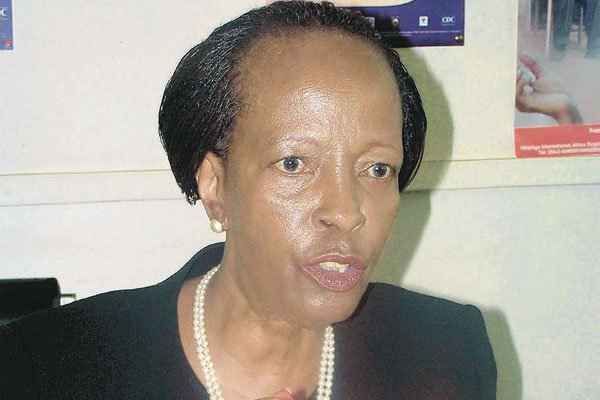2019 KTDA Farmers’ Tea Bonus payments: This is what farmers are to get and reasons behind the low pay
The Kenya Tea Development Agency, KTDA, managed factories have earned a total of Ksh 69.77 billion from tea sales for the year ended June 2019.
This performance has been realized at a time when most of tea producing countries have registered increased production while importing markets have experienced political and economic challenges Global tea production stands at 5.8 billion kilos while demand is at 5.6 billion kilos resulting in a 200 million kilos surplus. A similar situation of high surplus was last experienced in the year 2013/14 when the total earnings were Ksh 32 97 billion.
During the year, the factories processed 1.13 billion kilos of green leaf into 262 million kgs of made black tea which was sold at an average price of US$ 2.59 compared to US$3.14 realized the previous year, representing an 18% drop.
Also read:
Pakistan, Egypt, UK and UAE and Sundan remain Kenya’s key export destinations for the black CTC tea type processed in Kenya. These countries have had significant currency devaluation due to political/economic challenges with Sudan, Pakistan and Egypt and UK registering 70%, 50%, 20 and 20% respectively.
Tea being a commodity traded in US Dollars, the currency devaluation reduces the purchasing power of the consuming population. Resumption of economic sanctions by the United States of America on Iran cut off a substantial market for Kenyan teas.
Important Links For You, Click below:
- Kisii University Courses, Requirements, Fees, Student Portals and how to apply
- Kenya Methodist University, kemu, Education and other Courses, Requirements, Fees, Student Portals and how to apply
- Kibabii University Courses, Requirements, Fees, Student Portals and how to apply
- Karatina University Courses, Requirements, Fees, Student Portals and how to apply
- Kabarak University Courses, Requirements, Fees, Student Portals and how to apply
- Education courses offered at Jaramogi Oginga Odinga, JOOUST, University:Requirements, Fees, Student Portals and how to apply
- Universities that offer education courses, teaching combinations, offered, requirements and how to apply for Chuka university courses
- KCA University Courses, Requirements, Fees, Student Portals and how to apply
- Kaimosi Friends University College Courses, Requirements, Fees, Student Portals and how to apply
- JKUAT Courses, Requirements, Fees, Student Portals and how to apply
- Garissa University Courses, Requirements, Fees, Student Portals and how to apply
- Egerton University Courses, Requirements, Fees, Student Portals and how to apply
- Dedan Kimathi University Courses, Requirements, Fees, Student Portals and how to apply
- Co-operative University Courses, Requirements, Fees, Student Portals and how to apply
- Chuka University Courses, Requirements, Fees, Student Portals and how to apply
- Maasai Mara University Courses, Admission, Requirements, Fees, Contacts, Student Portals Log in, Website and How to Apply
- Lukenya University Courses, Admission, Requirements, Fees, Contacts, Student Portals Log in, Website and How to Apply
- Laikipia University Courses, Admission, Requirements, Fees, Contacts, Student Portals Log in, Website and How to Apply
- Koitalel University Courses, Admissions, Requirements, Fees, Location, Contacts, Student Portals Log in, Website and How to Apply
- Kirinyaga University Courses, Admissions, Requirements, Fees, Location, Contacts, Student Portals Log in, Website and How to Apply
- Kibabii University Courses, Admissions, Requirements, Fees, Location, Contacts, Student Portals Log in, Website and How to Apply
- New list of all Kenyan university courses, requirements, fees, students, portals, website and how to apply
- Kenya Highlands University Courses, Admissions, Requirements, Fees, Location, Contacts, Student Portals Log in, Website and How to Apply
- New list of Top, Best Universities in Kenya
Due to the above factors, the current performance is 18% below last year’s performance when the factories eamed Ksh85.74 billion. Out of the Ksh 69.77 billion revenue, farmers will receive a total of Ksh 46.45 billion being the sum total of Ksh 17.69 billion in initial monthly payment and 28.76 billion as second and final payment.
The payout represents an average return of 67% of the total tea revenue, with farmers receiving an average of Ksh 41.27 per kilo of green leaf delivered.
KTDA-managed factories are facing challenges such as high costs of energy and labour.
The factories are also grappling with other challenges like tea hawking that has led to a reduction in the amount of green leaf available to some factories, thereby adversely affecting their operating capacity, and quality of leaf available for processing.
To reduce the rising costs of production, factories are investing in small hydropower stations (SHPs) to deliver affordable and reliable power supply to factories. Some of the SHPs that have been completed and are generating electricity include Imenti, Gura, Chania and North Methioya. The factories have also automated factory processes and established wood plantations that are expected to be a long term source of wood fuel for factories.
Besides investments in SHP, KTDA has also invested in other enterprises along the value chain to unlock and generale as much value as possible for the benefit of the farmer. These include Chai Trading, Ketepa, Temec, Majani Insurance Brokers and Green land Fedha.
KTDA has also set up a Foundation to undertake social investments on behalf of the group focusing on education, environment, economic empowerment and health.
A number of factories have also ventured into orthodox tea manufacture in a move to reduce reliance on Black CTC tea. The strategy is aimed at diversifying markets for tea.
Kangaita, Michimikuru, Itumbi, Imenti, Kiru, Thumaita and Gitugitca factories are manufacturing orthodox teas and a few others are installing the orthodox including Chinga, Kagwe and Matunwa. The main markets for orthodox teas are Russia, Germany, USA, Dubai, Taiwan, Turkey, Iran, The Czech Republic, Kazakhstan and Canada.
Tea quality remains the smallholders competitive advantage in the international markets.
To this end, factories have put in place farmers field schools to train their farmers on tea crop husbandry, income stream diversification, safe use of chemicals and environmental conservation.
Since inception in 2006, 105.000 farmers have graduated from 4300 such schools. Currently there are 400 schools running about 10,000 farmers enrolled.
Kenya is the leading exporter of black CTC teas in the world accounting for about 23 percent of the global exports with KTDA accounting for about 13 percent.




